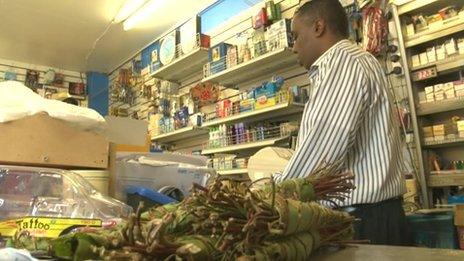Khat ban hits almost 30 Bristol businesses
- Published
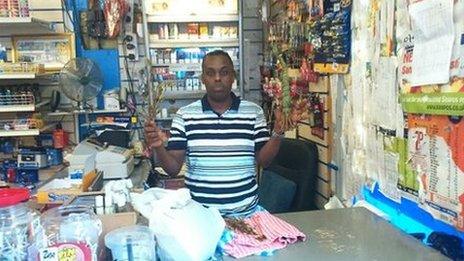
Shop owner Mohamoud Mohamed has been selling khat for the last 12 years
Almost 30 businesses in Bristol selling khat - a legal herbal drug used by the Somali community - may have to close when it is banned in the UK on Tuesday.
Most of the city's Somalis welcome the ban but are worried the community has not had time to "prepare and adapt".
Community activist Khalil Abdi said the issues were both economic and social, with traders losing income and users who will have "nowhere to go".
The council said it was working together with the Somali community.
Khat is a leafy plant, grown in Kenya and exported to the UK, and acts as a stimulant when chewed. From 24 June it will become a banned class C drug.
Mohamoud Mohamed who makes £200 a day selling khat from his corner shop on Stapleton Road in Easton said he would lose half his income.
"My immediate action is to stop selling, there's no choice - it's compulsory. I'm law abiding. I don't want to be locked up for one piece of khat."
He has recently let his cleaner and shop assistant go because of the ban.
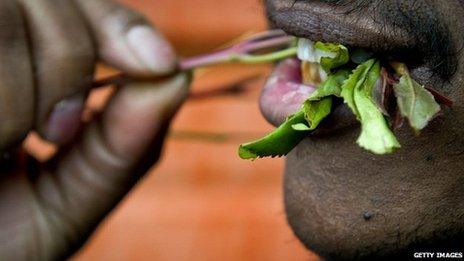
The two main stimulants in khat speed up the user's mind and body, like a less powerful amphetamine
Bristol has 22 "marfishes" - special cafes where khat is chewed - and five shops also sell it.
The marfishes are dominated by men but some women chew khat. One of Mr Mohamed's female customers said, although she supported the ban, she bought it "occasionally at weekends to socialise at home" and described it as a "stress relief".
The 19-year-old did not want to give her name because it is "not socially acceptable" for women to chew.
Bristol's main khat trader, Abdirahim Ahmed, drives to Heathrow four days a week bringing back 160 boxes every day - each box contains 40 bundles of khat at a price of £3 each.
He said: "I will have to find another job and the marfishes will need to be replaced by cafes with snooker or table tennis."
Community activist Khalil Abdi said: "People welcome the ban, including those selling it, but the problem is that it's very short notice.
"A lot of the people who are chewing now have no skills and that's what concerns the community. Up to now they've been contained in the marfish - but now they've got nowhere to go and will come on to the street.
"The marfish is a community in itself - the people who are struggling will lose that support when it's no longer available."
"People will need training in basic skills such as learning English in order to be able to find a job," he added.
Peter Anderson, of Bristol City Council's Safer Bristol team, said the council was working with the community to "seek solutions which were best for the community".
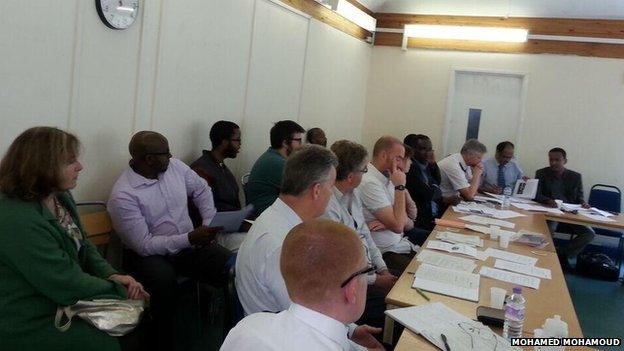
Bristol City Council has been in meetings with the Somali community to work out how to tackle the khat ban
- Published21 June 2014
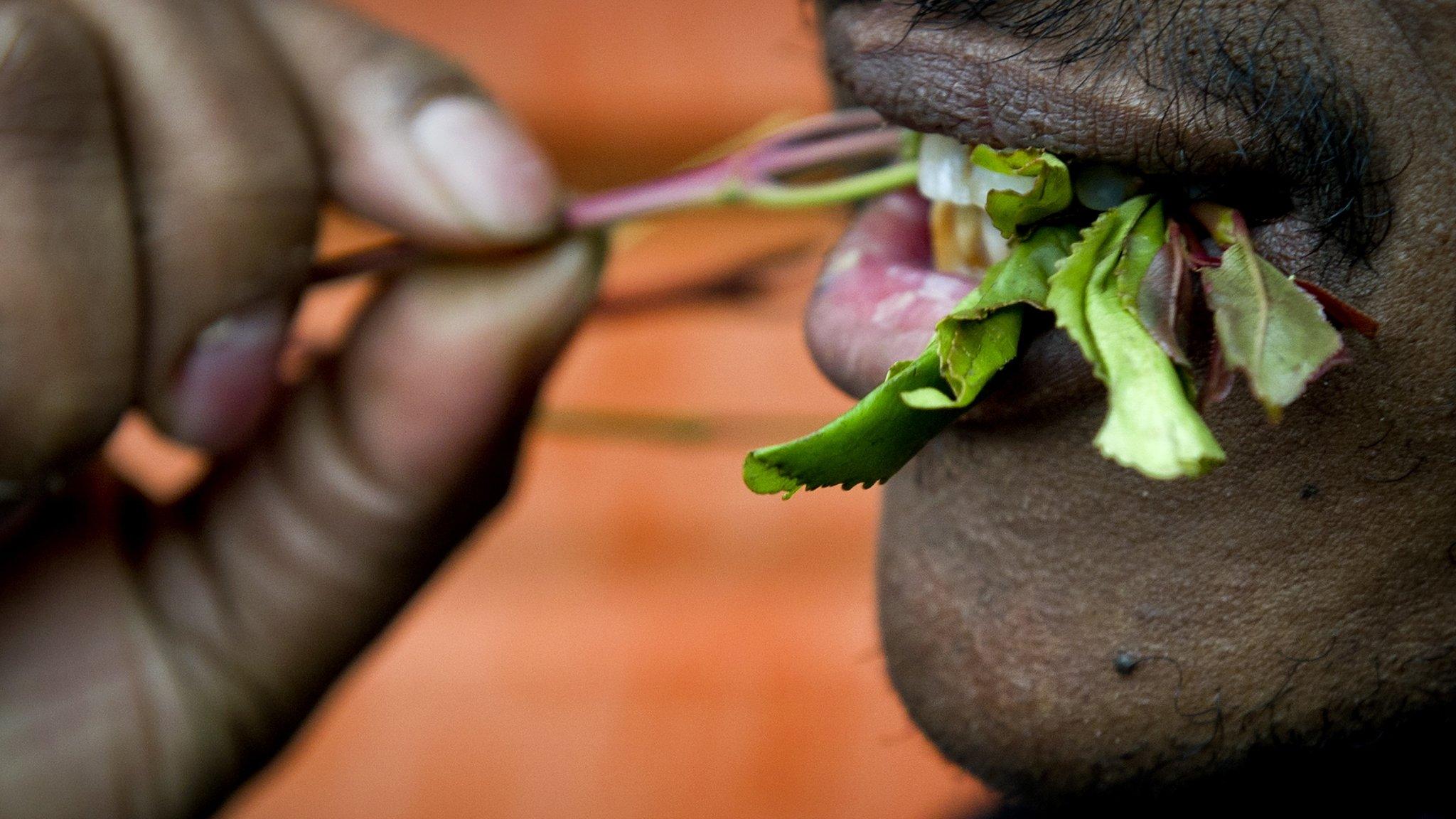
- Published3 July 2013
